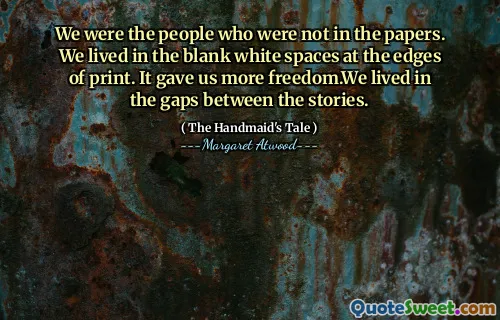As the architects of Gilead knew, to institute an effective totalitarian system or indeed any system at all you must offer some benefits and freedoms, at least to a privileged few, in return for those you remove.
In "The Handmaid's Tale," Margaret Atwood explores the mechanics of a totalitarian regime through the experiences of its characters. The architects of Gilead understood that to successfully impose a strict system, they had to provide some advantages and freedoms to select individuals. This strategy helps maintain the illusion of stability and order within a repressive society, making the oppression more palatable for those granted privileges.
This insight reveals the complex nature of power dynamics, where oppression is often masked by selective benefits. By understanding that some freedoms can be restored to a few, the regime manipulates social hierarchies and ensures compliance among the broader population, highlighting the moral compromises people make in the face of authoritarian rule.






